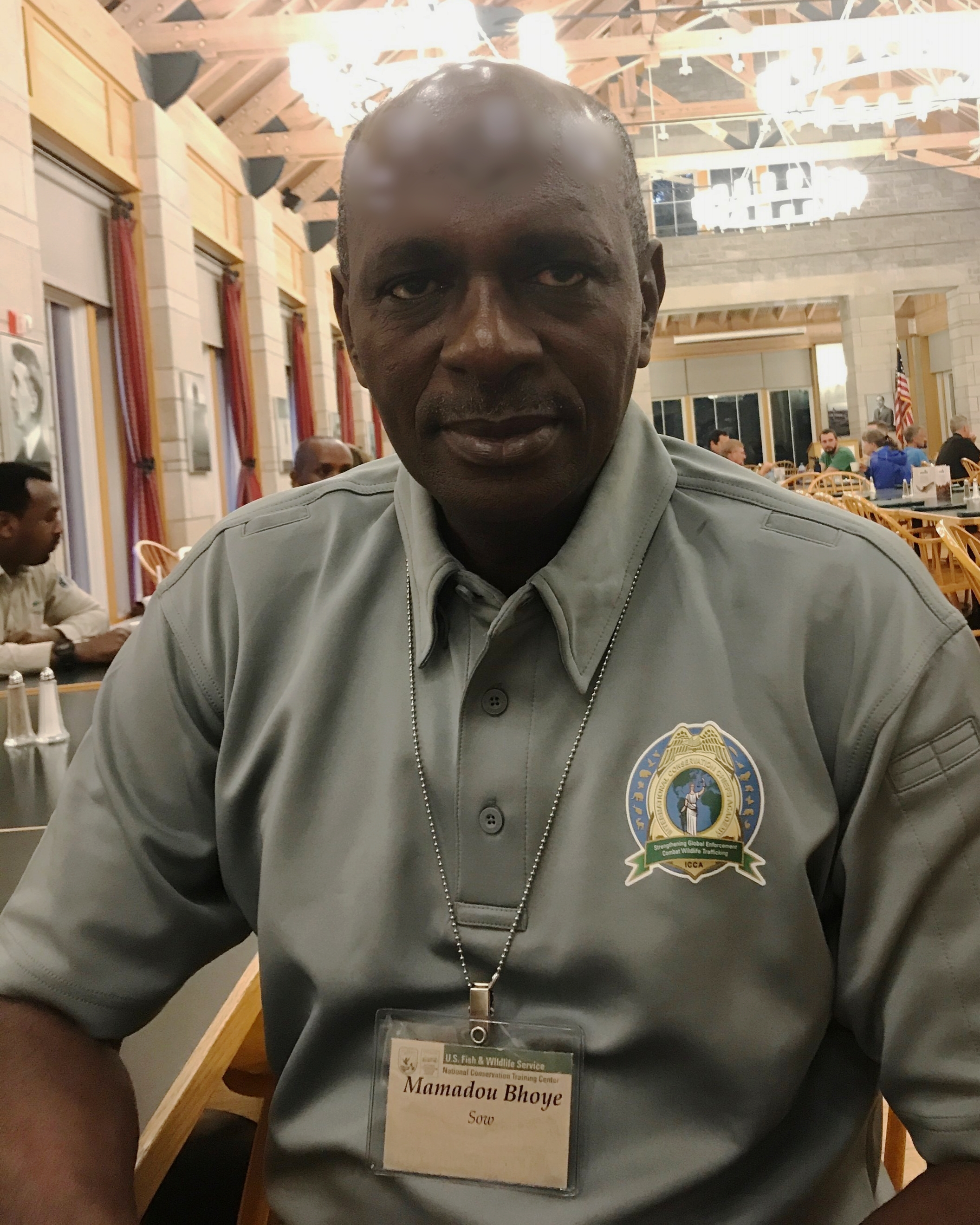Washington, D.C. -- The murder of internationally recognized wildlife protector Wayne Lotter will not deter efforts to combat poaching in Tanzania, co-workers of Lotter’s said in accepting an award in Lotter’s honor during a banquet Sept. 12 at National Geographic Headquarters in Washington, D.C. This is the second year National Geographic has hosted the banquet honoring those involved in international wildlife trafficking enforcement.
l to r - Randy Stark, Executive Director, NACLEC; Ed Grace, USFWS Chief Office of Law Enforcement: John Mwakalenga, Tanzania Police Force; Krissie Clark, Co-Founder PAMS; Kiza Baraga, Wildlife Officer, Tanzania Ministry of Natural Resources and Tourism; Robert Mande, Assistant Director of Anti-Poaching, Tanzania Ministry of Natural Resources and Tourism.
Lotter, 51, was killed August 16 in Dar es Salaam, Tanzania, while riding in a taxi from the airport to a hotel. The taxi was stopped by another vehicle, two men got out, opened the taxi door and one of them shot Lotter at close range.
Krissie Clark, who co-founded the PAMS Foundation along with Lotter and Ally Namangaya in 2009, said the foundation would continue the work Lotter helped start. Wildlife law enforcement officials from Tanzania, who accepted the award with Clark, said their efforts would continue.
The Tanzanians accepting the award along with Krissie Clark were Robert Mande, assistant director of Anti-Poaching at the Wildlife Division in Dar es Salaam, Kiza Baraga, assistant coordinator in the country’s Wildlife and Forest Crimes Taskforce, and John Mwakalenga, a criminal investigations officer with the Tanzania Police Force.
The Tanzanians were among 42 wildlife enforcement officials from 17 African countries attending the banquet who were training at the National Conservation Training Center at Shepherdstown, West Virginia, and 32 state and federal conservation enforcement conservation law enforcement executives from 30 states who were training with them. This is the second year officials from African countries have trained in the U.S. at the International Conservation Chiefs Academy at the National Conservation Training Center.
Robert Mande, who knew and worked with Lotter since 2009, saw Lotter as a motivator who was flexible and always interested in trying to improve their operations.
“I’m taking his loss as a big challenge,” said Mande. “It’s like when you are in the army fighting a war and you lose your commander: you don’t stop fighting, you continue but the loss of the person will still be there. It will motivate us to honor him by fighting harder and try to fill the gap.”
Mande said that Lotter was special because he was willing to think outside of the box. He worked with the military, police, and national intelligence on serious crime investigation units and supported the National and Transnational Serious Crime Investigation Unit established by the President of Tanzania. "The Tanzanian government, under the presidency of his excellency Dr. J.P. Magufuli, upholds and appreciates the role of private partnerships. Therefore, PAMS enjoyed the public private partnership (PPP) in United Republic of Tanzania which made possible conducting joint operations sponsored by PAMS," stated Mande.
“I kept in contact with Wayne because we have the same philosophy; that to be effective in combatting illegal wildlife trafficking, we have to work with villages outside of the protected national parks, game reserves and conservation areas,” said Mande.
“Wayne devoted his life to Africa’s Wildlife, from working as a ranger in his native South Africa as a young man to leading the charge to combat poaching in Tanzania,” according to the PAMS Foundation Facebook Page. “Wayne believed communities were the best protectors of the continent’s animals. Through his work with PAMS he helped train thousands of village game scouts in every corner of the country.”
Lotter’s work developing an intelligence-based approach to preventing poaching helped reverse the high rates of poaching facing Tanzania, according to the foundation.
“He died bravely fighting for the cause he was most passionate about,” the PAMS Foundation team wrote.
Lotter is survived by his wife Inge, daughters Cara Jayne and Tamsin, and parents Vera and Charles Lotter.
Lotter’s murder is still under investigation.








